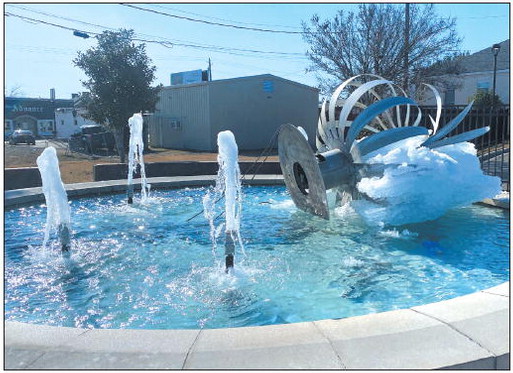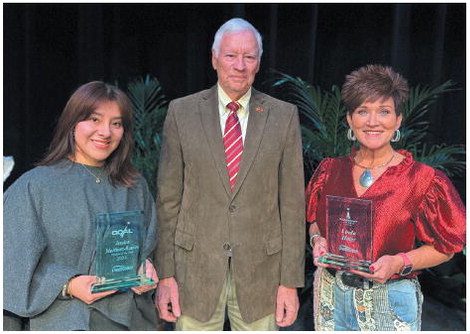Georgia Revolutionary War Trivia


Editor’s Note: In preparation for the 250th Anniversary of the American Revolution, the Four Rivers Chapter of the Sons of the American Revolution (SAR) Vice President William Sanders is sharing messages of the impact of the war on today’s society.
This month we are going to look at all the Georgia Revolutionary War trivia you would to know, and then some. If this knowledge causes you to win a prize in a game somewhere, please remember me.
At the beginning of the Revolution, Georgia was not known for its population. It was the smallest of the thirteen colonies, with approximately 27,465 people living here. That does not seem very approximate to me, why not between 27,000 and 28,000, but what do I know? AI knows everything. The major towns during this period were Savannah, Augusta, Ebenezer, and Sunbury. There was no Atlanta or Columbus for them to compete with. Savannah was the largest of these with a whopping population of 3,700. My hometown growing up beat this at 5,500, even Vidalia beats this. If you have German ancestors, they may have lived in Ebenezer when they first moved here.
Which is the oldest town in Georgia? You're right it's Savannah, followed by Augusta. Augusta even had the honor of our state government being moved there in 1779. It's a wonder that everyone in Savannah doesn't speak with a British accent, because the British occupied it for most of the Revolution.
Let's see what else can I share that will help you win Friday night's trivia game.
Around 2,600 men from Georgia served during the American Revolution. Most of our ancestors that fought, including mine, served in the militia. The average time they served during the Revolution was 23 months, taking breaks to come home and check on their families, and plant crops. People in the American Militia served multiple tours, just like our guys and gals that went to Iran or Afghanistan.
The difference between then and now is the militia had to furnish their own rifle, powder, and rounds. There was no standard caliber. Eli Whitney had not invented interchangeable gun parts. So, if your musket was broken (would not fire) you couldn't rob a part of one lying on the battlefield to fix it. Most militia carried one of four rifles: Smoothbore Brown Bess, American Long Rifle, or either a Kentucky or Pennsylvania Rifle. Everyone was also required to bring their own powder horn (with gunpowder, not face powder, in it), and 20 musket balls for the bore of the rifle they carried. When I think about this, I can't help thinking about the scene out of the movie 'The Patriot' where Mel Gibson is melting down the toy soldiers of his son, who was murdered by a British Soldier, to make musket balls.
Our ancestors that served in the militia were paid $6.67 a month, if they were paid at all. I think of a marching song we used to sing in the Air Force. It said, 'They say that in the Air Force the pay is mighty fine. They give you a hundred dollars and take back ninety-nine.'
There aren't a lot of figures as to how many of our ancestors died fighting the Revolutionary War. The only number we have is the 83 that were killed in the Battle of Savannah. This is a little over 3% of those that served. The highest death rate was during the Civil War (7% Confederate and 6.6% union). One death is one too many. I think we should go back to fighting wars with muskets. Maybe it would slow the killing down, till someone came to his or her senses.
If your mind isn't already overloaded with senseless trivia, I have a little more for you. There were Indians living in Georgia during this time period. Ever wonder why we don't have any Indian Casinos here? Many of them sided with the British. So, we had to fight them (the Creeks and the Cherokees), and the British. The Creeks were removed in 1828, and the Cherokees from 18381839. Because they sided with the British, the Creeks had to build their casinos in Alabama. While the Cherokees were forced to move to Oklahoma and settle on the last land in America that no one wanted. The last laugh was on us , because there was oil under that land.
What did the women and children in Georgia do while the men were off fighting?
Well, they did several things. The main thing was they ran the farms. We were an agrarian society, which means there was no Foodland, Foodworld, or Walmart. You raised what you ate. If you didn't raise anything, you didn't eat.
They raised money for the war effort in their spare time, and made homespun clothes for the troops. If that wasn't enough, they tried to recover after either the British or the Indians burned their homes and crops.
I hope you learned something from this article, and had a chuckle or two. This article was researched with AI, but it was not written by AI. It was written by someone with a Mississippi education. Most folks would say that's definitely not AI.





